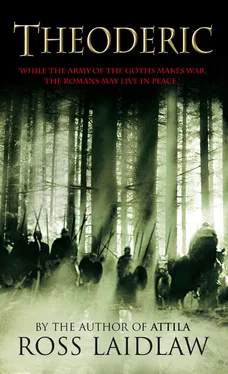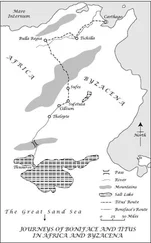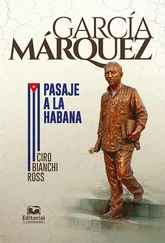Ross Laidlaw - Theodoric
Здесь есть возможность читать онлайн «Ross Laidlaw - Theodoric» весь текст электронной книги совершенно бесплатно (целиком полную версию без сокращений). В некоторых случаях можно слушать аудио, скачать через торрент в формате fb2 и присутствует краткое содержание. Жанр: Исторические приключения, на английском языке. Описание произведения, (предисловие) а так же отзывы посетителей доступны на портале библиотеки ЛибКат.
- Название:Theodoric
- Автор:
- Жанр:
- Год:неизвестен
- ISBN:нет данных
- Рейтинг книги:3 / 5. Голосов: 1
-
Избранное:Добавить в избранное
- Отзывы:
-
Ваша оценка:
- 60
- 1
- 2
- 3
- 4
- 5
Theodoric: краткое содержание, описание и аннотация
Предлагаем к чтению аннотацию, описание, краткое содержание или предисловие (зависит от того, что написал сам автор книги «Theodoric»). Если вы не нашли необходимую информацию о книге — напишите в комментариях, мы постараемся отыскать её.
Theodoric — читать онлайн бесплатно полную книгу (весь текст) целиком
Ниже представлен текст книги, разбитый по страницам. Система сохранения места последней прочитанной страницы, позволяет с удобством читать онлайн бесплатно книгу «Theodoric», без необходимости каждый раз заново искать на чём Вы остановились. Поставьте закладку, и сможете в любой момент перейти на страницу, на которой закончили чтение.
Интервал:
Закладка:
Timothy whistled. ‘Things as bad as that? I hadn’t realized. But what about the limitanei — the border troops? Aren’t they supposed to keep order on the frontier?’
‘Been pulled back to reinforce the field armies decimated in the wars with Attila. All things considered, I’d not have bet a brass obol on your making it through to Pannonia, not with that lot who’ve just left us. Don’t get me wrong; the Fifth Macedonians are a good bunch. It’s just that they’ve been trained to fight pitched battles in the field, not take on shadowy marauders using hit-and-run tactics — the sort of people you’ll be up against. As for their their boy decurion, he’s a callow green-horn who’d likely lose his head in a crisis and get you all killed. With my Excubitors, it’s an altogether different story; when it comes to dirty fighting, they’re the ones who wrote the book.’
‘May I ask a question, sir?’ enquired Theoderic, patting his horse’s neck to calm the animal, grown restless.
‘Ask away.’
‘Why are you willing to help us? I don’t wish to seem offensive or ungrateful, but some in my position might ask, “What’s in it for you?”’
‘A fair point, young man. Your question shows a Roman cast of mind: logical, rational, weighing up pros and cons, gains or losses. But I’m not Roman, I’m an Isaurian. My people have always been fiercely independent, and were never really conquered by Rome. Oh, to keep them off our backs we made a show of accepting Roman rule. In return, they’ve had the sense to leave us pretty well alone so long as we don’t cause too much trouble. Also, we provide some of the best fighting men for their legions. But back to your question. Isaurians are ruled by their hearts not their heads — the opposite of Romans. Let’s just say I’ve taken a liking to my fellow Isaurian Timothy here. As I’ve taken a liking to yourself; there aren’t many would have held their ground in face of a charge by Excubitors. I admire that. A pity, I thought, should either of you come to grief because of poor protection.’
‘And the real reason?’
Zeno stared at Theoderic, then let out a delighted whoop. ‘By the bones of St Euphemia, there’s more to you than I was led to think.’ Shaking his head, he shot Timothy a rueful glance. ‘All right, I’ll come clean. Nothing personal, young Theoderic, but I’m no great lover of your people. Ever since they wiped out our army at Adrianople nearly a century ago, they’ve been a thorn in the empire’s flesh. Most, thank goodness, have now moved on — the Visigoths to a new homeland in Gaul, the Ostrogoths to theirs in Pannonia. But here in Thrace, too close to the capital for comfort, a large contingent of Goths have been permitted to settle, officially as federates. Their leader’s your namesake: one Theoderic Strabo, known as “the Squinter”, a formidable young man who’s got the emperor’s ear, thanks to General Aspar — my rival for the top army job. He admires the Goths, by the way, and to my way of thinking has allowed far too many Goths into the army. Complicated?’
Theoderic and Timothy looked at each other. ‘Just a bit,’ admitted Timothy.
‘Bear with me. The Squinter’s federates are getting restive; seems they’re afraid that me and my Isaurians might displace them in the emperor’s favour. To keep them in check I need a counterbalance — a group powerful enough to take them on should they become a danger to the Eastern Empire. Unless your uncle Vidimir blocks the succession, which is unlikely, you, Theoderic, are set to take over from your father eventually as king of the Ostrogoths. Given that you’re willing, you could provide that balance of power — the Amal Goths holding the scales against the Thracian Goths. As a Friend of Rome, you’d have a lot to gain: the backing of both empires, generous subsidies, the security of a guaranteed homeland. What do you say?’
Theoderic’s head whirled. Things were moving almost too fast for his mind to grapple with. At seventeen, a retiring student with no experience of ordering the lives of others, he was being invited to enter the heady world of power politics, to hold the balance between, on the one hand, the huge might of the Roman Empire — or at least of its Eastern half — and, on the other, the immense and dangerous energies of volatile barbarian nations. A challenge at which the most experienced of statesmen might surely balk. Hopefully, though, his father would reign for many more years yet, years in which his son would learn from him the arts of statecraft and the management of men. And being a Friend of Rome, well, that at least represented a form of acceptance by that glittering world of power and beauty which he admired and loved, but, as a barbarian, could never fully enter.
‘What is there to say?’ rejoined Theoderic. ‘When the time comes for me to rule the Ostrogoths, I’ll gladly take up your offer.’
‘Splendid,’ pronounced Zeno, making his horse perform a cara-cole. ‘If we had wine, I’d drink a toast to that. I’ll leave you now, in the care of my Excubitors. That’s their captain, Thalassios.’ He indicated a villainous-looking individual with a leering, scarred face. ‘He’ll see you safe and sound to Pannonia. You’ve nothing to worry about till after the Succi — that’s the pass between Dacia and Thrace. Thrace being the Squinter’s fief, and the Squinter being Aspar’s ally, no one’s going to bother you this side of the diocesan border. Well, good fortune, and may the gods-sorry, God, be with you.’ And with a wave and a grin, Zeno wheeled his mount and galloped back towards the capital.
The first part of the journey, heading slightly north of west, was through the central plain of Thrace, which was studded with farms and villas, with endless fields of wheat and sunflowers rolling away on either side. On the fifth day they reached Adrianople, near which, as Zeno had mentioned, the Goths had inflicted a massive defeat on a Roman army a hundred years before. The arrow-straight strap of the Sirmium road branching off from the Via Egnatia now followed the valley of the broad, tree-lined Maritsa river, dotted with craft of all kinds from fishing-boats to freight transport vessels.
Eight days out from the capital, the party reached the great walled city of Philippopolis,* founded by Philip of Macedon, father of Alexander the Great, its Graeco-Macedonian past now subsumed by Roman buildings. These included a vast theatre, a stadium, and a church dedicated to Emperor Constantine. Once beyond the city, the scenery changed dramatically, the route running between the heavily wooded foothills of the Haemus and Rhodope ranges, to north and south respectively, with glimpses of distant snow-capped peaks etched against skies of brilliant blue. The steadily rising terrain afforded welcome relief from the heat, oppressive even in early June.
The approaches to the Succi were heralded by steepening slopes hemming in the highway on either side, a dramatic V-shaped cleft on the far horizon marking the pass itself.
‘Well, Deric,’ remarked Timothy, ‘so far, so uneventful.’ He jerked his chin towards the distant gap. ‘Once through that, perhaps the fun will start.’
‘We may not have to wait that long,’ observed Theoderic drily. ‘Look.’ He pointed to the hillside above them to the right, where scores of men were emerging from the trees.
‘And over there.’ Timothy pointed to the left. All at once, the surrounding slopes were swarming with footsoldiers who, rapidly descending to the road, surrounded Theoderic’s group. Big, fair-haired fellows armed with spears, they were clearly Goths. One, their leader, judging by his sword and gilded Spangenhelm — the conical, segmented helmet favoured by Teutonic warriors — approached Theoderic and Timothy. ‘You will come with us,’ he announced in passable Greek.
Читать дальшеИнтервал:
Закладка:
Похожие книги на «Theodoric»
Представляем Вашему вниманию похожие книги на «Theodoric» списком для выбора. Мы отобрали схожую по названию и смыслу литературу в надежде предоставить читателям больше вариантов отыскать новые, интересные, ещё непрочитанные произведения.
Обсуждение, отзывы о книге «Theodoric» и просто собственные мнения читателей. Оставьте ваши комментарии, напишите, что Вы думаете о произведении, его смысле или главных героях. Укажите что конкретно понравилось, а что нет, и почему Вы так считаете.












